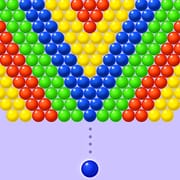Efficiency Gains in Gameplay
Puzzle games, by their nature, offer a mental break and can subtly improve cognitive function. The quick play sessions inherent in this type of game allow for short bursts of focus, potentially enhancing overall attention span. The game's design contributes to efficiency by offering immediate feedback on moves, reducing wasted time on unproductive strategies.
Time-Saving Features
This game genre typically features a straightforward control scheme, minimizing the learning curve and allowing players to quickly engage with the core mechanics. Levels are often designed to be completed in short periods, making it ideal for utilizing small pockets of downtime. Consider the impact of level restart options; instant restarts negate lengthy replay attempts, maximizing playtime effectiveness.
Workflow Improvements through Focused Engagement
The clear objectives within each level promote focused problem-solving. Completing levels provides a sense of accomplishment, fostering a positive feedback loop that can translate to improved motivation in other tasks. The game requires strategic planning and quick decision-making, skills that are transferable to real-world scenarios.
Productivity Tools Within the Game
While the core loop is entertainment, the game provides an environment to practice pattern recognition and strategic thinking. The presence of power-ups, if implemented well, can act as shortcuts to overcome challenging situations, teaching resource management in a simplified context. Consider power-ups like bomb bubbles which clear the surrounding area which may help save moves and thus time. The game could include statistics tracking (accuracy, levels cleared per session) to allow users to reflect on their improvement.
Process Optimization in Puzzle Solving
Each level presents a unique puzzle, encouraging players to adapt their strategies. This constant adaptation can translate to a more flexible approach to problem-solving in daily life. By identifying efficient strategies and implementing them in-game, players implicitly learn to optimize their processes for achieving desired outcomes. Consider how the limited number of shots in some levels force more efficient targeting and planning.
Pros
- Short, focused gameplay sessions
- Simple controls for quick engagement
- Promotes strategic thinking and problem-solving
- Potential for cognitive skill enhancement
Cons
- Can be addictive, leading to wasted time if not managed
- Monetization strategies (ads, in-app purchases) can disrupt flow
- Limited long-term skill transfer without conscious effort
Overall Efficiency Value
As a casual game, its primary value is entertainment, but the game provides opportunities for practicing focus, strategy, and problem-solving. Its efficiency depends on the player's ability to balance enjoyment with responsible time management.
| Feature | Efficiency Impact |
|---|---|
| Quick Levels | Maximizes playtime in short bursts |
| Intuitive Controls | Reduces learning curve and frustration |
| Strategic Gameplay | Encourages planning and resource management |




